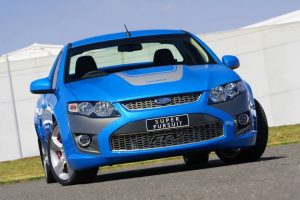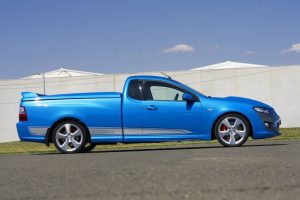Recalls: FPV FG Pursuit
Overview
Manufacturers, or importers, issue recalls for defects or faults which have the potential to cause injury. Generally, manufacturers will inform the original buyers if their vehicle is subject to a recall and of the steps required to remedy the defect or fault. Please note that the recalls below (if any) are for Australian-delivered vehicles only. Furthermore, the number of recalls should not be taken as an indication of a model’s reliability or its safety more generally.
Recalls: FPV FG Pursuit
No recall information is available for the FPV FG Pursuit. To search for recalls of Ford models, please visit Product Safety Recalls Australia: Ford.
Problems and faults: FPV FG Pursuit
Overview
This section identifies potential problems, causes and fixes based on the experiences of owners and repairers, online sources and technical service bulletins. This information is provided solely for reference purposes and AustralianCar.Reviews recommends that only properly qualified persons carry out repairs or modifications. Furthermore, the number of items below should not be taken as an indicator of a model’s reliability or the frequency with which they may occur.
To report a problem or fault to the AustralianCar.Reviews team, please use the Contact Us form. Note that AustralianCar.Reviews does not offer advice on automotive problems or disputes; such enquiries will not receive a reply. For vehicles purchased from dealers after 1 January 2011, please see our Australian Consumer Law fact sheet.
ZF Transmission
The six-speed ZF automatic transmissions used an external heat exchanger to cool the transmission. However, the lines within the heat exchanger could deteriorate over time, allowing coolant and transmission oil to mix. If this occurred, the fluid in the coolant reservoir would appear milky (hence the term ‘milkshake’) and, within the transmission, the friction linings would be pulled from their steel backings and the mechatronic control unit would be damaged. To fix, the transmission would have to be rebuilt and the mechatronic control unit replaced.
To prevent contamination of the transmission fluid with coolant, a common modification was to fit an external air/oil cooler kit to bypass the heat exchanger. In fitting these, however, it was important that the transmission fluid be filled to the correct level as the ZF transmission was sensitive to fluid levels and would enter ‘limp home’ mode if not within tolerances. Another modification was to replace the OEM heat exchanger and hoses/lines to the transmission with a more robust after-market product. Please note, however, that Ford Australia considered any modifications to the heat exchanger to void the warranty.
Suspension
- Knocking noises from the rear suspension when driving over bumps may indicate that the upper shock bushes require replacement.
Battery voltage
Ford’s FG range introduced a new CAN Bus which can result in error messages and faults (such as the air conditioning not working, see below) if battery voltage drops below 9.6 volts during start up. While the original battery fitted by Ford was rated as 520 CCA, it is recommended that higher rated batteries be fitted.
Air conditioning not working
- The FG Falcon range had a different air conditioning than its BA/BF predecessors and poor performance could be due to a defective HIM module (most common for late 2009 to early 2010 models). For models with climate control, a faulty ambient temperature sensor – positioned on the left wing mirror – could also be the cause. A software upgrade was subsequently introduced which kept the compressor engaged for longer.
- In March 2011, the conditioning system was revised with a new HIM module, evaporator, condensor, compressor and pipework, though it cannot be retrofitted to earlier models.
- If the battery voltage drops below 9.6 volts during start up, the air conditioning compressor won’t operate (such that air conditioning will not work). If the battery has recently been disconnected or gone flat, the air conditioning must be reset by letting the motor idle with the air conditioning switched on for at least a minute.
Miami V8 engine: oil consumption
For Ford’s 5.0-litre supercharged Miami V8 engine, owners are recommended to check the oil level every 1,000 kilometres when running in and every 2,000 kilometres thereafter since the engine does consume some oil when new. In the USA, Ford considers oil consumption for the supercharged V8 engine of one quart per 1000 miles (around 600 ml per 1000 kilometres) to be acceptable.




